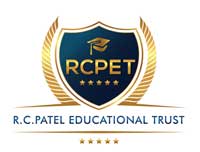Best Practice 2
A Centre for Study, Research and Preservation of Ahirani: A Dialect in North Maharashtra
The College has initiated the dialect preserving practice under the A Centre for Study, Research and Preservation of Ahirani: A Dialect in North Maharashtra.
The Context of the Centre :
The Centre is set up with a view to study the dialects especially, Ahirani: A regional variant of Marathi, which is popularly spoken in the North Region of Maharashtra. The centre concentrates on the study and research of the dialects and at the same time to preserve the dialects.
Objectives :
- To make the students aware of the Ahirani dialect
- To preserve the diminishing words in Ahirani
- To initiate collaborative work to collect the Ahirani vocabulary
- To transform collection of vocabulary into a simple dictionary
- To encourage the students to use Ahirani and make the conscious of the linguistic and literary treasure of Ahirani.
Practice :
The centre established an editorial board comprising the faculty members of Humanities. Initially, they planned for collecting the vocabulary of Ahirani. For the purpose the teachers and students visited the villages and interacted with the Ahirani speaking folk. Meanwhile, the centre organized the workshops and discussion sessions at college level to collect the Ahirani words. As Ahirani is spoken in the rural area, the vocabulary related agriculture, culture, festivals, rituals, and traditions found the place in the dictionary. The vocabulary was noted down. The several meetings were held to sort the words and to find out the meanings of the words in Marathi.
Evidence of Success :
After the care selection of the words and fixing their meanings in Marathi, the rough draft of the dictionary was prepared. After the review and consultation with the publisher, the Ahirani Dictionary – अहिराणीशब्दकोश came into existence.
Problems Encountered and Resource Required :
As the project of is very exhaustive. The editor- board which consist the faculty members of Languages and Humanities worked comprehensively. They worked voluntarily to prepare the Shabdkosh, thinking that it is their moral responsibility to work for Ahirani, as Ahirani is the mother tongue of the most of them. Preparing a dictionary of Ahirani was comparatively easier. The challenges stand ahead to preserve the dialect and making the people to use it actively.
Future Plan :
In, future, we shall collect the folk songs in Ahirani dialect. The songs will be inscribed in text forms and they will be recorded in audio form.
